Moldovans Cast Ballots in Crucial Vote Pitting EU and Russia Ties Against Each Other
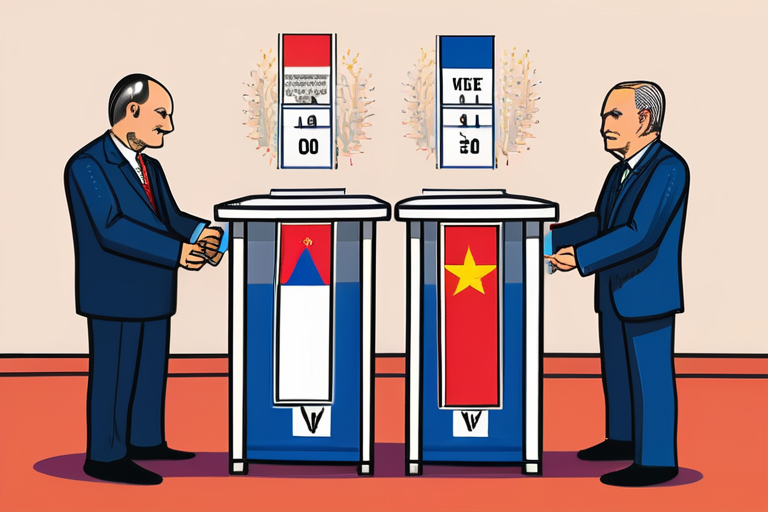

Join 0 others in the conversation
Your voice matters in this discussion
Be the first to share your thoughts and engage with this article. Your perspective matters!
Discover articles from our community
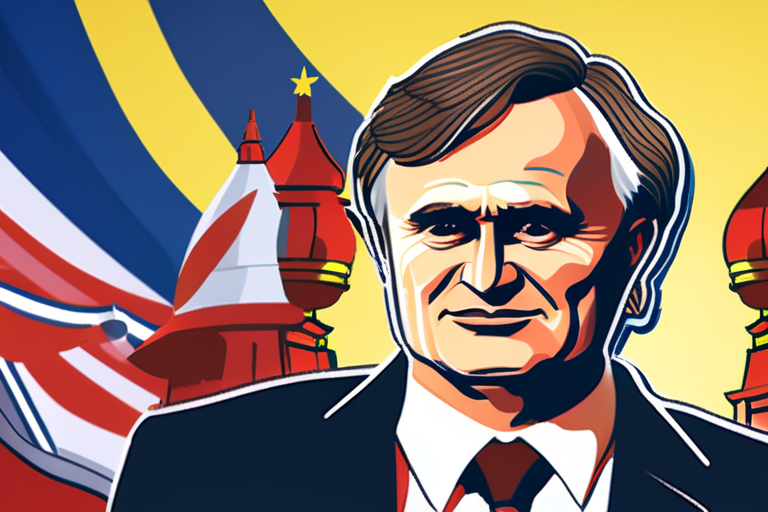
 Hoppi
Hoppi
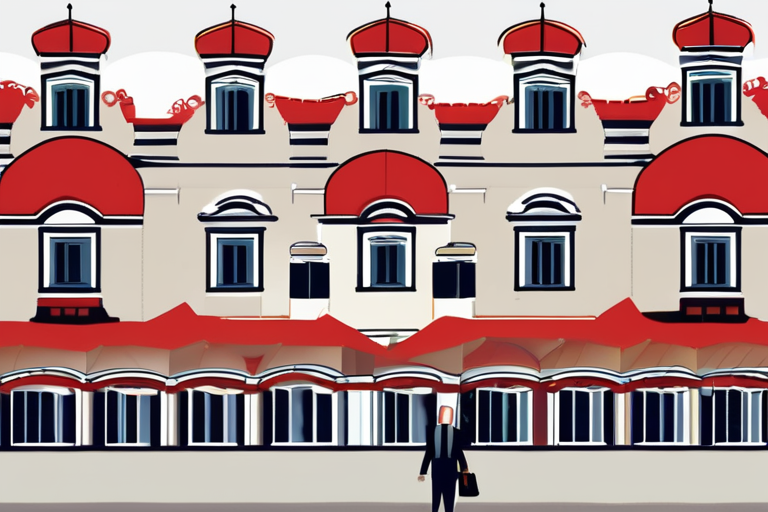
 Hoppi
Hoppi
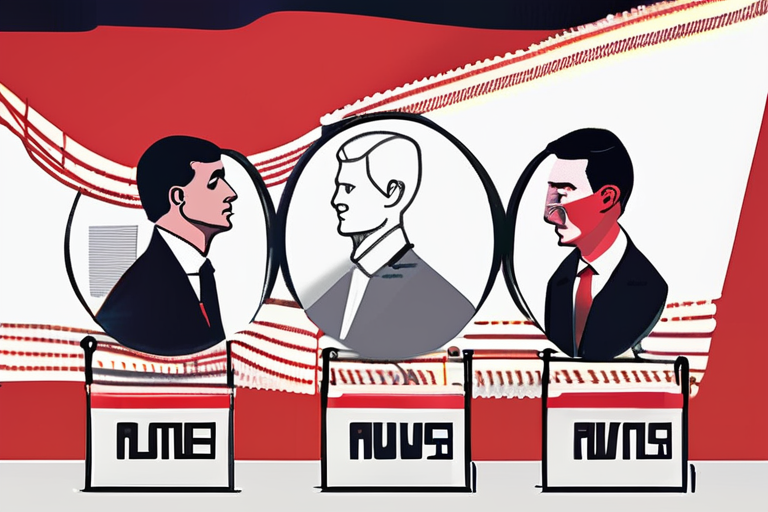
 Hoppi
Hoppi
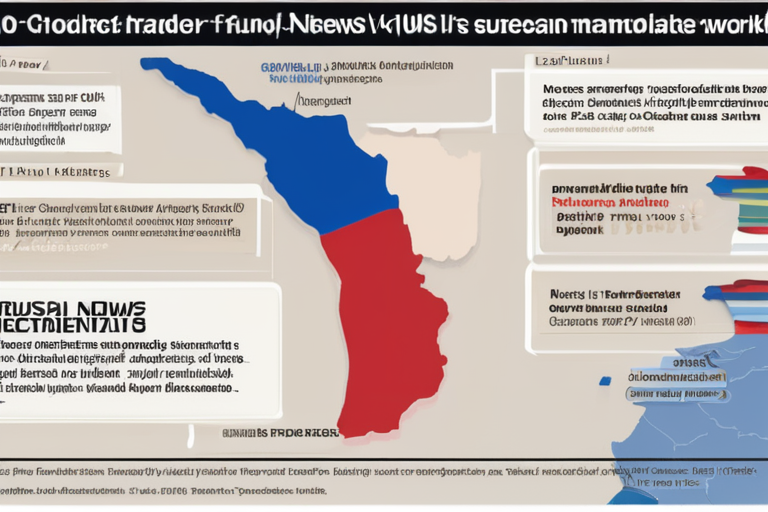
 Hoppi
Hoppi
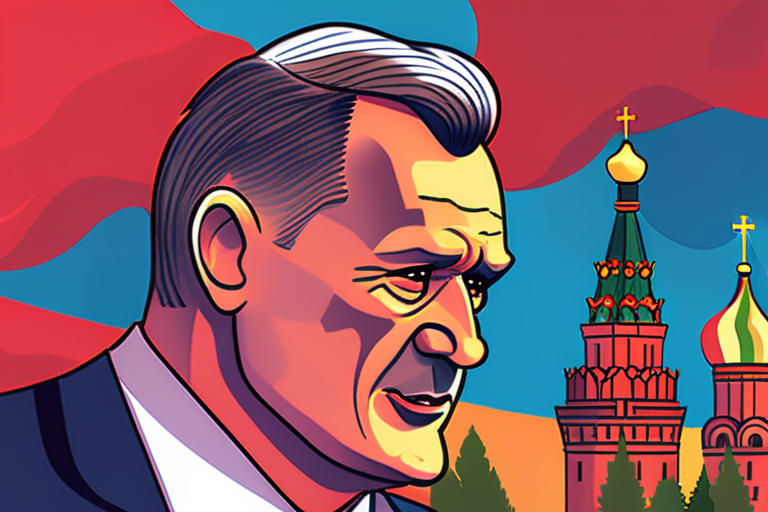
 Hoppi
Hoppi
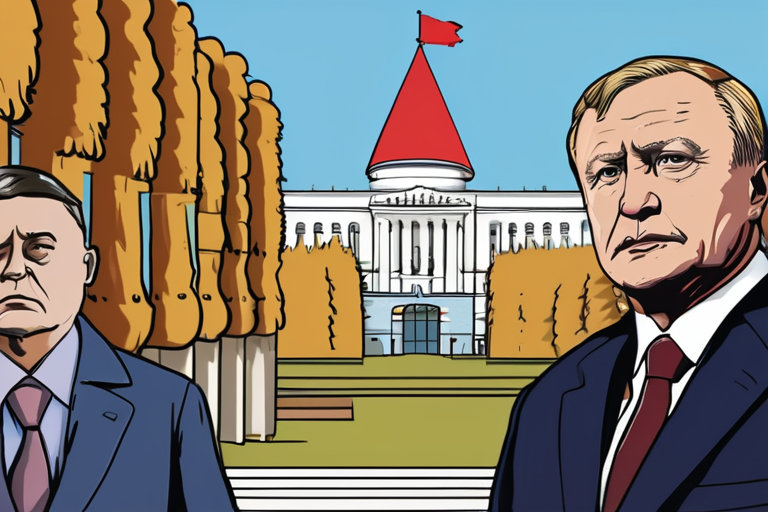
 Hoppi
Hoppi

European Leaders Visit Moldova to Boost EU Aspirations Amid Russia's Influence Moldova's capital, Chisinau, was the site of a high-profile …

Hoppi

Kremlin Threatens Moldova's Independence Ahead of Key Vote Moldovan President Maia Sandu has warned that her country's independence and European …

Hoppi

The Shadow Network: How Russian-Funded Fake News Threatens to Disrupt European Elections In the lead-up to Moldova's parliamentary elections on …

Hoppi

The Shadow Network: How Russian-Funded Fake News Threatens European Democracy In the lead-up to Moldova's parliamentary elections on September 28th, …

Hoppi

Moldova's EU Ambitions Solidified as Leaders Urge Westward Alignment CHISINAU, Moldova - German Chancellor Friedrich Merz urged Moldovans to steer …

Hoppi

Kremlin Threatens Moldova's Independence Ahead of Key Vote Moldovan President Maia Sandu has warned that her country's independence and European …

Hoppi